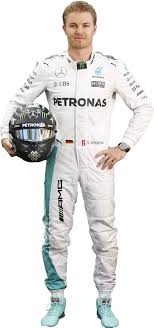
Introduction
Nico Rosberg, the 2016 Formula 1 World Champion, has transitioned from motorsport stardom to becoming a prominent advocate for sustainability and green initiatives. His journey from the fast-paced world of Formula 1 to promoting environmental awareness highlights the intersection of sports and sustainable living, making him a significant figure in both areas. Understanding Rosberg’s current endeavors provides insight into how high-profile athletes can influence public perceptions about environmental responsibility.
Career Highlights
Nico Rosberg, born on June 27, 1985, in Wiesbaden, Germany, quickly rose through the ranks of motorsport, securing his place in Formula 1. After several successful seasons with Williams and Mercedes, Rosberg won his first and only World Championship in 2016, famously clinching the title after a fierce rivalry with teammate Lewis Hamilton. His unexpected retirement shortly after claiming the championship shocked the motorsport community, but it also marked the beginning of a new chapter in his life.
Transition to Sustainability Advocacy
Since retiring from racing, Rosberg has dedicated himself to advocating for sustainable practices and promoting green technologies. In 2017, he established the Rosberg X Racing team, which competes in the Extreme E series, a motorsport championship that raises awareness about environmental issues while using electric vehicles. The series places the races in areas affected by climate change and aims to highlight the urgent need for action.
Rosberg has also utilized his platform to engage in various initiatives related to sustainability, including collaborations with environmental organizations and participation in discussions related to climate change. He actively promotes the adoption of electric vehicles and renewable energy, emphasizing the need for innovation in reducing the automotive industry’s carbon footprint.
Impact and Significance
Rosberg’s work goes beyond just racing; it encapsulates a deeper message about the responsibility that comes with fame. By leveraging his public image, he aims to drive critical conversations around climate action and inspire fans, fellow athletes, and the next generation to take actionable steps towards a greener future. His approach serves as a reminder that even in realms seemingly unrelated to environmental advocacy, individuals can play a vital role in prompting valuable changes.
Conclusion
Nico Rosberg’s journey from a celebrated Formula 1 driver to a champion of sustainability illustrates how athletes can transcend their sports and make lasting contributions to society. As issues related to climate change become increasingly pressing, Rosberg’s advocacy highlights the essential role that public figures can play in promoting critical discussions and solutions. Looking forward, his efforts may help foster a greater sense of responsibility among individuals and industries alike, paving the way for a more sustainable future.



